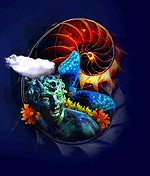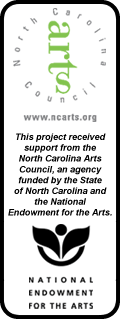|
|
Interviewer: John Amen
JA: Your prison memoir, A Place to Stand, is a story of tremendous triumph and redemption. All of the stories in your recent collection, The Importance of a Piece of Paper, contain themes of redemption and paint the human spirit as ultimately indomitable. As a writer, you seem to be very in touch with and focused on the redemptive aspects of life. Could you speak about this?
JSB: Well, there is no other option to the redemptive question than to give up. And I won't do that in the face of oppression. It's a diabolical system that can be defied and fought against and one can defend one's integrity against it. I really didn't have a choice in the matter. Would I prefer to live like a slave, owned by a master, told what to think? I don't believe so. So I struck out by reading and writing and carried books with me as my shield against ignorance.
JA: Clearly A Place to Stand illustrates, to use your words, how you “defied" and “fought against" the prison system. I imagine that your life is very different now from the way it used to be. What are the systems that you now find yourself defying and fighting against? I mean, in many ways, life can be dehumanizing, what with politics and the media and all the pressures that come at one constantly. Again, what would you say you’re defying and fighting against now? And what do you feel you’re fighting for?
JSB: I’m currently working in a prison doing a documentary (a three-year project) on the power of reading and writing and books. I'm taking topics such as literacy, gang violence, self-esteem, poverty, cultural background, education, in individual segments (videos), also creating a teacher reading list and lesson plan, as well as videos, to help staff and teachers and convicts navigate this horrible world corporations have taken over. Prison kills the spirit, murders hope, teaches hate, encourages violence, and I aim to break that cycle and empower prisoners. I also have literacy groups I teach on the streets, have for thirty years. Started a theater, given my time to kids and adults to teach them to write and read, personally funding scholarships and programs for kids trying to get into community college, paying for their tuition and books and food, etc. We have a non-profit, Cedar Tree, Inc., and people have generously given bits of money they can afford to help out. We also give away books. We act as consultants to organizations trying to get a handle on juvenile violence. We have many more requests to help than we have staff or time, and we are always bogged down, trying to do more than we can, but we go on and do what we can.
JA: A Place to Stand is also, as I experience it, about the tragedies and triumphs associated with family dynamics. You mention, toward the end of the book, that you have a son who would be, I think, 22 now. If it’s not too personal, I’m wondering, have you experienced a lot of healing through being a father?—being able to provide or offer things you weren’t given?
JSB: I haven't been able to afford to give my three sons much during their lives. I've always been poor. And this is true to this day. But they've always told me that they love and understand me. It's a beautiful blessing to have my sons with me.
JA: I bet so. And even if you haven’t offered all these material things, I’m sure you’ve been able to offer some kind of guidance or family connection that you didn’t have? That makes a huge difference in a person’s life.
JSB: I'm not a parent that tries the latest parenting theories on my children. I believe spending time helps, laughing, allowing them to be right, following their advice, accepting their kindness. Most of my family have been murdered, are drunks or addicts, don't talk to each other, don't care, are after money or real estate and material possessions. I'm the first in my bloodline to try and correct this—showing them that to live deeply is to have relationships you care about, that compassion is a worthier pursuit than pursing money, that giving is often better than receiving; non-violence is big with me, and it's been hard to teach my sons that, since the world around them is so violent.
JA: I believe you recently received your PhD. Do you enjoy the “academic process"?
JSB: The academic process is fine. I truly enjoy reading scholastic papers, books, etc. My doctorate degree was an honorary degree, given me by the University of New Mexico, for work I've done in communities teaching people to read and write. I've done it for thirty-three years. Several thousand people from the barrios, reservations, and projects, as well as freed convicts, showed up to honor me. I was blown away, speechless.
JA: You do a lot of work with inmates, teenagers, and people who are struggling with addiction—turning them on to the power of literature and expression. We all speak about the transformative power of art, but sometimes I get the sense that it’s more “lip service" than true conviction. You, however, are someone whose life was clearly changed by the word. You address this quite clearly in A Place to Stand, but, for those who might not be as familiar with the book, could you speak a little about how the word—reading and writing—has affected your life? And also how you see it affecting the lives of those with whom you work?
JSB: I wouldn't have a life if I couldn't read and write. There'd be no way to understand the world, nor express myself, nor dream and work, nor love. Part of my love for my family and life comes from understanding the world through reading and writing. I read about other people’s lives, what they went through, how they think, what their dances and poetry and customs are, and it serves to balance myself in the world, gives me perspective, insights into my own life, options, hope and pain.
The people I teach have proven a thousand times over how reading and writing can change their lives—improve self-esteem, enhance their lives, move them through dilemmas, support their dreams, make them full and wholesome people.
JA: When you reflect on your life and development as a writer, what do you see as some of your major breakthroughs or achievements, so far?
JSB: Discipline.
JA: Do you mean in terms of commitment to regular writing? To tackling things that are difficult to express? To making yourself vulnerable?
JSB: Yes, getting up and writing. But not formulaic writing or achievement or grade/job writing, or trying to better another writer. I write from a deep opaque source, a steamy landscape, where fire and spirits and voices and death and birth populate a mythic terrain in my heart. Language is an old horse, and each morning I go out in the field and harness it up. It gets harder to uproot the boulders, harder because the weather is cold (the mood of these greedy times vicious and vindictive). For some, language has become an Arabian show-horse, groomed in luxurious stalls of publicity offices—the media scatters sawdust, grooms the book's eyelashes, brushes the body, shines the hooves. Unfortunately, my horse is dirty and stinky and scarred, ill-kempt, but we show up each dawn to take on the weediest fields and prepare them for spring planting; we give harvest of the soul, this old horse, language, and me.
JA: On the other hand, what is something—a theme, an approach, a technique—with which you still struggle?
JSB: Getting up every morning to write. I love the outdoors. Love hiking, fishing, hunting, spending time with my family; traveling, eating, and so writing is tough, when there's all this beauty around.
JA: Clearly your own writing came out of, at least in part, a developed passion for reading. For those who aren’t as familiar with A Place to Stand, who were some of the writers who influenced you early on? More generally, could you speak a little about how you perceive the relationship between reading and writing? Who are some of the writers you’re reading these days?
JSB: Early influences were Whitman, Neruda, my Walden Pond buddy Mr. T. Emerson, Wordsworth, also many bands from the sixties (Hendrix, Joplin, Rolling Stones, Clapton, jazz, blues), as well as more modern ones such as Nirvana, French and Spanish poets, certainly the Mexican poets (Sabines, Paz, etc.); then, of course, South American poets; many more, too, Pakistani, Iraqi, Afghani poets. You have to read or you can't write, and you have to write something—a journal, diary, letters—to make reading personally meaningful. I love to do both.
JA: In a 2001 reading, you remarked—and I apologize, I’m paraphrasing—“you can either help to build the fire in someone or you can help to put it out." Could you speak about this a little? What does this statement mean to you? And how does it affect the decisions you make, how you direct and invest your energy?
JSB: My job with the literacy programs I have is not to make people into writers, but to keep lit that fire in each of us, that spiritual/passionate flame that allows us to be courageous and helpful and open-hearted. With a good self-image, people can accomplish amazing things.
|
|



